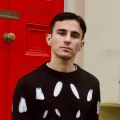By now, you’ve likely scrolled past at least a dozen Instagram Stories captioned “LIDOooo 🐚☀️🎶” featuring blurry shots of someone’s £18 canned cocktail and the unmistakable shimmer of a sequinned co-ord in the Victoria Park sun. Welcome to LIDO—London’s new 10-day festival that somehow made sustainability cool, turned headliners into curators, and gave us the most fashion-forward crowd this side of Paris Fashion Week. If Glastonbury is a muddy rite of passage, LIDO is its polished, pop-literate, sound-obsessed younger cousin, with better coffee and a crowd that actually cares about SPF.
The inaugural edition wrapped on Sunday with a cinematic headline set by London Grammar—yes, that band whose music you only realise you've been crying to on public transport after the third verse kicks in. The trio brought their signature widescreen melancholy to the festival’s final night, with Hannah Reid’s vocals soaring over Victoria Park like they were hand-delivered by a Hermes courier. Their cover of Kavinsky’s ‘Nightfall’ was unexpectedly tender, while songs like ‘Wasting My Young Years’ and ‘House’ gave the kind of sonic catharsis only found when you’re three cocktails deep and swaying in a field that smells vaguely of Diptyque and drizzle.
But LIDO wasn’t just about closing night—it was a cultural moment wrapped in curated soundscapes, surprise celeb sightings (hello, Harry Styles), and sustainability that wasn’t performative. This is, after all, a festival that opened with a 100% battery-powered day designed by Massive Attack, who brought out Elizabeth Fraser, Yasiin Bey, and Horace Andy like it was a casual Tuesday. When a festival starts with that much taste, you stay until the end.
Each day was programmed entirely by the headliner, a format that gave rise to beautifully chaotic bills that felt more like a playlist than a lineup. On Saturday, Charli XCX presented Party Girl, a hyperpop fever dream starring Gesaffelstein, 070 Shake, and A. G. Cook. There was a surprise appearance by Amelia Dimoldenberg, who led the ‘Apple’ dance (if you know, you know), and a few rumoured cameos in the crowd—namely Harris Dickinson and Paul Mescal, whose mere presence somehow made the VIP section look even more exclusive.
Friday brought Outbreak Fest to London for the first time, led by Turnstile, who delivered a headline set so kinetic it might’ve shifted tectonic plates beneath Hackney. And if you needed a moment to recover, Jamie xx’s day offered just the right kind of euphoria, with B2B sets from Skrillex, Shy FX, Nia Archives, and a surprise The xx reunion. Did Harry Styles dance in the crowd? Yes. Was he wearing something sheer and fabulous? Of course.
But LIDO also had its softer moments. Sunday opened with spoken-word meets lo-fi groove from Dan Whitlam, followed by the Wasia Project (aka Will Gao and Olivia Hardy), whose dream-pop-meets-classical vibe is perfect for anyone who once studied piano but now prefers synths and feelings. Clementine Douglas played a new track called ‘Tokyo’ that basically begs for a club remix, and The White Gates Band brought Essex rock realness to a third stage affectionately dubbed “The Club.”
The fashion? Think gauzy trousers, archival Jean Paul Gaultier, and the kind of deconstructed tanks only achievable if your full-time job is being very online. Celeste arrived in front of a swaying crowd for her main stage set and proved that she’s not only London’s sonic siren but also the queen of vibey existentialism. ‘Could Be a Machine’ tackled our slow descent into techno-human ambiguity, while unreleased track ‘Only Time Will Tell’ already feels like a future festival classic.
And then there was Róisín Murphy. Icon, shape-shifter, technicolour priestess. Emerging in something between a dreamcoat and a fever dream, she opened with Moloko’s ‘Pure Pleasure Seeker’ and didn’t let up until the front row had practically collapsed into her outstretched arm bearing long-stem roses. If there was a religion that revolved around Róisín Murphy, LIDO just became its first cathedral.
Meanwhile, Pip Millett offered the kind of set that makes you want to quit your job and start journaling again. Her take on ‘Try a Little Tenderness’ was soft and honest, and she reminded the crowd—many of whom were probably hearing live R&B for the first time since 2020—that connection is still possible through a mic and a bit of good reverb.
There was even space for nostalgia. Maverick Sabre performed ‘Can’t Be Wrong’ stripped-back with just vocals and guitar, before slipping back into full-band soul mode. “This year marks my 20th year doing shows,” he told the crowd. A few people gasped audibly. Some of them weren’t born yet.
Underpinning the whole operation was LIDO’s crisp ML3A sound system from Martin Audio, which deserves its own headliner slot. It delivered the kind of detail that lets you hear the sharp intake of breath before a lyric or the subtle rise in synth you’d otherwise miss on a Bluetooth speaker. Tech heads were whispering the name Robb Allan (the engineer behind it all) like it was a luxury password.
More than a music festival, LIDO was an expression of taste—of who’s next, who’s still iconic, and who can make you feel something in a field of strangers. A festival curated by artists, not marketers. One that took sustainability seriously but never sanctimoniously. And above all, one that let London be cool in a way that wasn’t try-hard, just honest.
The bar for music festivals has been raised, and it’s wearing tinted sunglasses, sipping iced matcha, and humming ‘Strong’ as the sun sets over Victoria Park.


